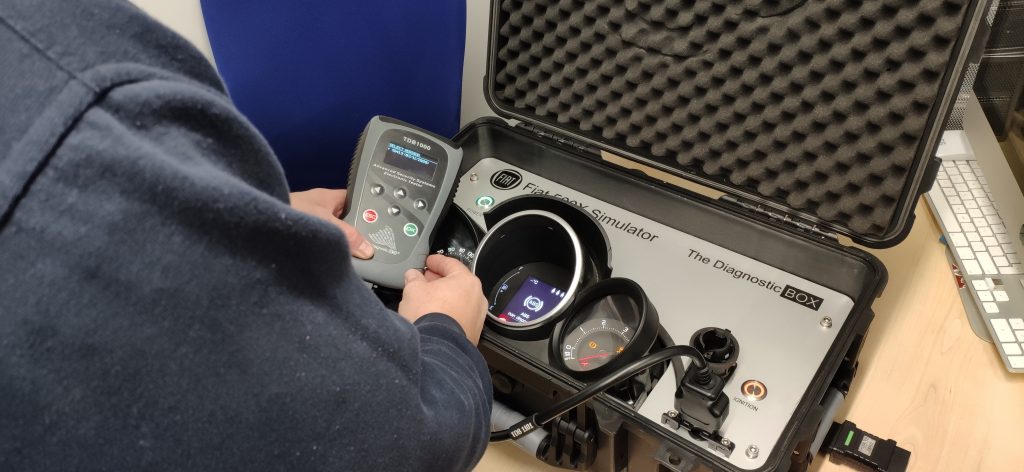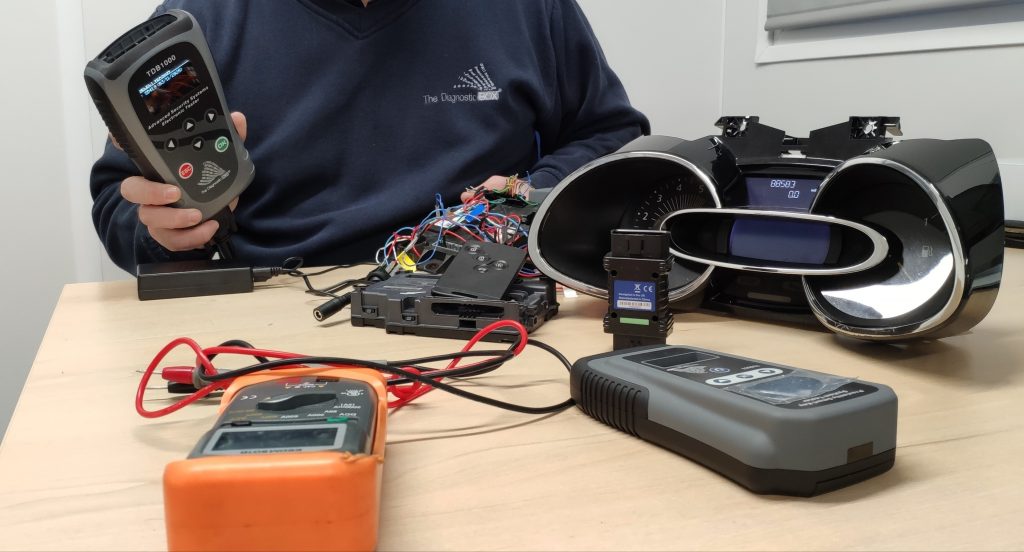The TDB1000 Advanced Security Systems Electronic Tester (ASSET) has been in circulation for around 3 years now and anyone who has been following it has seen the improvements and new software modules that have been released.

The software modules which have been released are system specific which means that, for example, although the software may be branded Peugeot/Citroen it will cover newer Vauxhall vehicles that use the Peugeot/Citroen system and Renault software covers Vauxhall Vivaro and Nissan Primastar.
Every week there are new vehicles added to existing modules and modifications to improve the programming methods or correct issues or inconsistencies within the procedures. These updates are added free of charge with the user simply having to update the tester weekly.
If a new vehicle system is released that is significantly different to the existing one, then a new module is released. This has already happened on VW/Seat/Skoda software and is currently under development for the latest Ford system. Where the systems differ so much from the earlier version it is impossible to add the new vehicles into the current modules and so work must begin again on a new module for the new system.
This is an insight into some of the work that is involved in the development of new software modules.
The Software Engineers at The Diagnostic Box start work in an office environment with data harvested from vehicles and/or simulators to allow them to fully understand a vehicle system. The Field Engineers keep feeding information from vehicles into the Software Engineers to ensure that every possible permutation is covered and considered. A process to identify and access the relevant part of the vehicle communications system to allow key programming gradually evolves. This is a painstaking procedure and can take months of work (and frustration) before a breakthrough is made.
Once the system is analysed and understood the fun begins and a provisional programming software is created. This is then tested on a simulator and adjusted and modified until it is ready for passing onto the Field Engineers who can test on vehicles. This goes backwards and forwards, over and over again until a viable beta module is ready and then it is tested on vehicles again to make sure that every possible model is covered with the software.

Access to vehicles for testing can be problematic and contacts of our Field Engineers are used along with those of our existing TDB1000 customers. This means that the testing can be done over a huge number of vehicles and variants. Once this is completed the vehicles are added to the production software menu and the software is released.
By the way, this is all based in the UK.
As you can see this is not a straightforward process and often everything takes much longer than first estimated but the results are always worthwhile and the extended testing means that the Engineers are always have a good understanding of the ‘real-world’ problems that the end user will face and means that any Technical Support is based on actual experience that can be passed on as needed.
The Diagnostic Box TDB1000 philosophy has been to provide a cost effective, simple to use and comprehensive key programmer that can grow with their customers’ needs and requirements. This is not an easy thing to do but I think that you can agree that it is all going the right way!
For more information please refer to www.advanced-keys.co.uk and look under ‘Key Programmer’ or call 021 749 5210.
